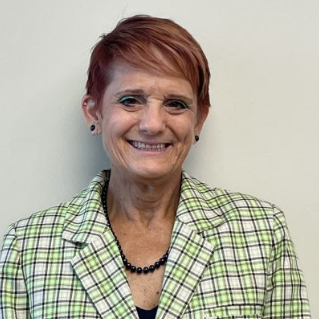FREQUENTLY ASKED QUESTIONS ABOUT ADHD CARE
Here, you’ll find answers to common questions about ADHD and how we provide personalized care.
Understanding ADHD and Our Care Approach
We understand that navigating ADHD can raise many questions, and we’re here to provide clear, informative answers. This page is designed to address common inquiries about ADHD, our diagnostic process, and the personalized care we offer. Whether you’re seeking more information about symptoms, treatment options, or how we tailor our approach to each individual, you’ll find the answers you need to make informed decisions.
What is ADHD?
ADHD, or Attention-Deficit/Hyperactivity Disorder, is a neurodevelopmental disorder that affects both children and adults. It is characterized by symptoms such as inattention, hyperactivity, and impulsivity. These symptoms can affect your life in school, work, relationships, home life, and more.
What are the symptoms of ADHD?
Symptoms can vary, but generally include a clinically relevant degree of these and other symptoms:
- Difficulty focusing or maintaining attention
- Frequent daydreaming
- Trouble organizing tasks and activities
- Trouble with task completion, poor time management, and chronic procrastination
- Impulsiveness, leading to hasty decisions or poor life choices
- Difficulty waiting for one’s turn
- Hyperactivity or restlessness, such as fidgeting or tapping
- Forgetfulness in daily activities
- Frequent interruptions in conversations or activities
- Losing things necessary for tasks (e.g., keys, phone, school materials)
- Difficulty following through on instructions or completing tasks
- Easily distracted by external stimuli, making it hard to concentrate
These symptoms significantly impact daily life, relationships, and academic or work performance.
How is ADHD diagnosed?
There is no single, definitive test for ADHD. ADHD is typically diagnosed by a healthcare professional through a comprehensive evaluation, including clinical interviews, questionnaires, and behavioral assessments. It is important that your ADHD assessment include evaluations for physical health conditions, sleep disorders, and other psychiatric conditions that can mimic or worsen ADHD.
At Atara Health, we use the QbTest from Qbtech, an FDA-cleared medical device which allow us to base our treatment plans on precise, objective data. Your ADHD assessment will include a self-reported rating scale, a detailed clinical interview, and the in-person computer-based QbTest.
How can ADHD be treated?
ADHD can be managed through a combination of strategies, including:
- Medications, including stimulants eg. methylphenidate (Ritalin) and amphetamines (Adderall); non-stimulants, e.g. atomoxetine (Strattera) and guanfacine (Intuniv).
- Behavioral Therapies, including Cognitive Behavioral Therapy (CBT), Parent Training, Social Skills Training, and Executive Function Coaching.
- Lifestyle Changes, including regular exercise, healthy diet and better sleep habits.
- Educational and Workplace Support, including Individualized Education Plans (IEPs) or 504 Plans, Tutoring or Specialized Instruction
- Additional support or accommodations for academic challenges.
Is ADHD just a childhood disorder?
No, ADHD persists into adulthood. Many adults with ADHD may have learned to cope with their symptoms, but they can still face challenges in various aspects of life, such as work and relationships.
What can I do if I think I have ADHD?
If you suspect you have ADHD, it’s important to consult a healthcare professional for an evaluation. They can provide guidance and help you explore appropriate treatment options.
Why ADHD Treatment Is Important
Getting formally diagnosed and treated for ADHD is crucial for several reasons.
- A proper diagnosis can clarify the challenges a person faces, helping them understand their behavior and feelings.
- Treatment options, including medication and therapy, can significantly improve focus, organization, and emotional regulation, leading to enhanced daily functioning.
- Early intervention can lead to better academic and professional outcomes, reducing feelings of frustration and low self-esteem.
- A formal diagnosis can provide access to support systems, accommodations, and resources, fostering a more positive and fulfilling life.
Ultimately, understanding and managing ADHD empowers individuals to reach their full potential.
Note: Our staff is currently obtaining their ADHD-Certified Clinical Service Provider certification.
MEET OUR TEAM

Norm Jacobowitz, APRN
HE/HIM | CARING FOR PATIENTS AGES 18-64
Specializing in Medication Management, ADHD Assessment, and Treatment Support
Norm graduated from Auburn University in Auburn, Alabama, in 1992. While working in the IT industry, he volunteered as a suicide hotline telephone worker for a year. Finding the work both rewarding and much in need, he took a massive pay cut to work in a psychiatric hospital, caring for the most vulnerable and gravely ill patients. He attended nursing school during this time, and upon graduation became a…MORE

Mary Fisher, APRN
SHE/HER | CARING FOR PATIENTS AGES 10+
Specializing in Behavioral Healthcare, Psychotherapy, ADHD Support
Mary Fisher is a Psychiatric Clinical Nurse Specialist and Family Nurse Practitioner. She has been a member of the nursing profession for 30 years. She is a graduate of Radford University with a Bachelor of Science in Nursing. She also holds a master’s in nursing from the University of Virginia. Her clinical interests include the treatment of children and adolescents as well as the medically complex. Her duaL…MORE
REVIEWS FROM REAL PATIENTS
CONTACT US
Now Accepting New Patients Ages 10+ in the Northern Virginia and DC Metro Area
12011 Route 50, Suite 410
Fairfax, VA 22033
P | 571-535-2480
E | operations@atarahealth.com
